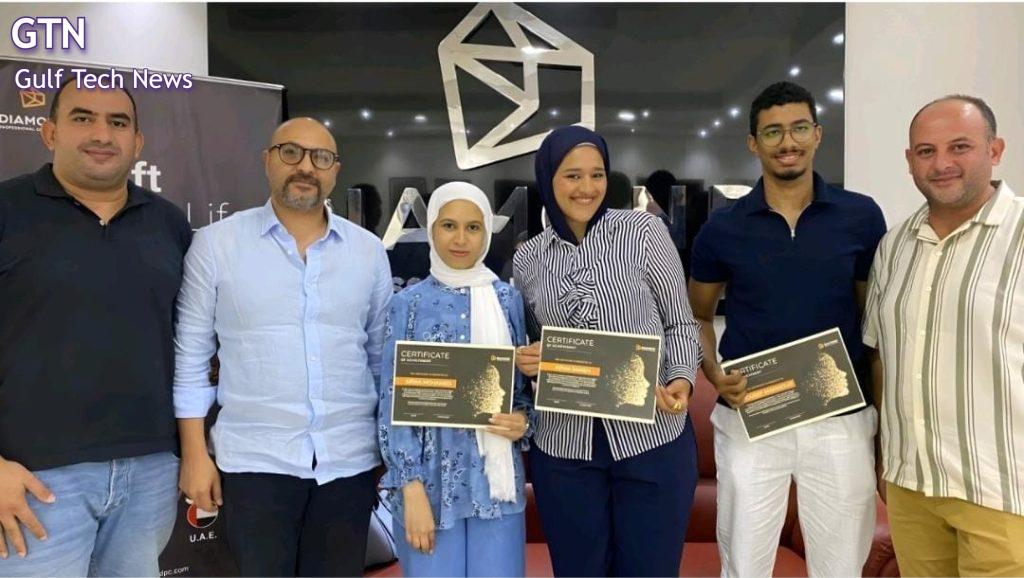“اليوم العالمي للنزاهة الأكاديمية”: يعزز القيم الأكاديمية في عصر الذكاء الاصطناعي

كتبت – جنان آل عيسى
في خطوة جديدة نحو تعزيز القيم الأكاديمية والوعي الأخلاقي وفي إطار الاحتفال بـ اليوم العالمي للنزاهة الأكاديمية، الذي يصادف ٢٣ أكتوبر من كل عام، نظم كرسي الإيسيكو لأخلاقيات الذكاء الاصطناعي بجامعة التقنية والعلوم التطبيقية بالتعاون مع كلية البريمي الجامعية، ورشة عمل تحت عنوان “النزاهة الأكاديمية في عصر الذكاء الاصطناعي: مسؤولية الجميع”، وذلك تحت رعاية سعادة الدكتورة جوخة بنت عبدالله الشكيلية، الرئيسة التنفيذية للهيئة العمانية للاعتماد الأكاديمي وضمان جودة التعليم.
الورشة التي عقدت بولاية البريمي هدفت إلى تسليط الضوء على أهمية النزاهة الأكاديمية في ظل التطور المتسارع لتقنيات الذكاء الاصطناعي، وكيفية الحفاظ على القيم الأخلاقية في بيئة أكاديمية تشهد تحولاً رقميًا غير مسبوق. كما أن الورشة شهدت مشاركة واسعة من نخبة من الخبراء والمختصين في مجالات الذكاء الاصطناعي والنزاهة الأكاديمية، وذلك في مسعى لتوحيد الجهود بين الأكاديميين، والطلاب، والباحثين، لتعزيز ثقافة النزاهة في الأوساط الأكاديمية.
يأتي تنظيم اليوم العالمي للنزاهة الأكاديمية في وقت يتزايد فيه الإقبال على استخدام الذكاء الاصطناعي في مختلف الجوانب الأكاديمية، ومنها البحث العلمي والتعليم الإلكتروني. ومع هذا التوسع في استخدام الذكاء الاصطناعي، تصبح النزاهة الأكاديمية تحديًا جديدًا يتطلب مقاربة متكاملة من جميع الأطراف المعنية في المجال الأكاديمي. ويعد هذا الحدث فرصة مهمة للحديث عن دور الذكاء الاصطناعي في تشكيل معايير النزاهة الأكاديمية في المستقبل. من خلال محاضرات وجلسات نقاشية تناول الخبراء جوانب متعددة من هذا الموضوع الشائك، مثل تأثير الذكاء الاصطناعي على التفكير النقدي، وتحديات النزاهة في البحث العلمي، والأخلاقيات في استخدام التكنولوجيا الحديثة.
كما أن تعزيز استخدام أخلاقيات الذكاء الاصطناعي يعد جزءًا من المسؤولية المشتركة بين جميع الأطراف الفاعلة في القطاع الأكاديمي، بدءًا من الطلاب، وصولًا إلى المؤسسات التعليمية والهيئات الأكاديمية المختصة. ومن خلال الورشة، أتيح للمشاركين فرصة لتبادل الأفكار حول كيفية جعل الذكاء الاصطناعي أداةً تخدم النزاهة الأكاديمية بدلاً من تهديدها. وتميز برنامج الورشة بكونه غنيًا بالأنشطة التفاعلية التي شملت محاضرات علمية، جلسات حوارية، ولقاءات مفتوحة مع المتخصصين في مجالات الذكاء الاصطناعي والنزاهة الأكاديمية. وأتيح للمشاركين فرصة النقاش في عدة محاور مثل أخلاقيات البحث العلمي، دور الذكاء الاصطناعي في تطوير التعليم العالي، وتحديات النزاهة الأكاديمية في العصر الرقمي.
وقد قدم عدد من الخبراء محاضرات متنوعة في هذا الشأن ومنهم: البروفيسور إيمانويل غوفي، رئيس قسم الأخلاقيات في معهد أيسب بفرنسا، الذي أكد خلال مناقشته على أهمية التفكير النقدي كأساس لبناء نزاهة أكاديمية حقيقية. أما الدكتور جاسم حجي، رئيس مجموعة الذكاء الاصطناعي بمملكة البحرين، تحدث في محاضرته حول تشكيل الذكاء الاصطناعي والنزاهة في منطقة الخليج، وتحديات المنطقة وكيفية تطوير سياسات تتماشى مع التطورات العالمية في هذا المجال. كما تحدثت البروفيسورة فاطمة المفرح، مديرة مركز البحث في جامعة الأميرة نورة بنت عبد الرحمن بالمملكة العربية السعودية، حول العلاقة بين الذكاء البشري والذكاء الاصطناعي في حفظ النزاهة الأكاديمية، وفيما إذا كان الذكاء الاصطناعي قادرًا على توجيه المبادئ الأخلاقية أم لا.
إلى جانب ذلك، قدم الدكتور ضحي الشكيلي، مساعد عميد كلية علوم الحاسوب والمعلومات بجامعة التقنية والعلوم التطبيقية بسلطنة عمان، محاضرة بعنوان: “من مستهلكين سلبيين إلى متعلمين نشطين: كيف نوجه دور الذكاء الاصطناعي في التعليم”، موضحً كيف يمكن للذكاء الاصطناعي أن يسهم في تطوير أساليب التعلم والتفاعل، ويُحدث تحولًا في كيفية استخدام الطلبة للمحتوى الأكاديمي. كما قدم الأستاذ لؤي أبو شاور، عضو المجلس العالمي للذكاء الاصطناعي بكندا، محاضرة حول كيفية الحفاظ على الثقة والحقائق في الأوساط الأكاديمية في ظل التقدم التكنولوجي السريع، وركز الدكتور ماجد العدوان، أستاذ مشارك في جامعة صحار بسلطنة عمان، والدكتورة خديجة البلوشية – خبيرة اعتماد مؤسسي في الهيئة العمانية للاعتماد الأكاديمي وضمان جودة التعليم على أهمية النزاهة في التعليم والبحث العلمي.
الجدير بالذكر، أن ورشة العمل هذه تؤكد على أن النزاهة الأكاديمية ليست مسؤولية فردية، بل هي مسؤولية جماعية تتطلب تضافر جهود الجميع، من طلبة وأساتذة وإداريين، لضمان بيئة أكاديمية نزيهة وعادلة. كما أنها لا تمثل فقط فرصة لتبادل الأفكار، بل هي دعوة لتمكين الأجيال القادمة من إرساء قواعد أخلاقية قوية في استخدام التكنولوجيا في الأوساط الأكاديمية، مما يساهم في بناء مستقبل أكاديمي يتسم بالعدالة والشفافية.
“International Day for Academic Integrity”: Promoting Academic Values in the Age of Artificial Intelligence
Written By: Jinan Aal Eisa
In a new step toward strengthening academic values and ethical awareness, and as part of the celebration of the International Day for Academic Integrity, which falls on October 23 each year, the ICESCO Chair for AI Ethics at the University of Technology and Applied Sciences, in collaboration with Al Buraimi University College, organized a workshop titled “Academic Integrity in Artificial Intelligence: Everyone’s Responsibility.” The event was held under the patronage of Her Excellency Dr. Jokha Abdullah Al Shukaili, Chief Executive Officer of the Oman Authority for Academic Accreditation and Quality Assurance of Education.
The workshop, held in the Wilayat of Al Buraimi, aimed to shed light on the importance of academic integrity amid the rapid development of artificial intelligence technologies, and how to preserve ethical values in an academic environment undergoing unprecedented digital transformation. The event brought together a wide range of experts and specialists in AI and academic integrity, seeking to unite the efforts of academics, students, and researchers to strengthen a culture of integrity within academic circles.
The celebration of the International Day for Academic Integrity comes at a time when the use of artificial intelligence is rapidly expanding across various academic areas, including scientific research and e-learning. With this growing reliance on AI, academic integrity has become a new challenge that requires an integrated approach involving all stakeholders in the academic field. This event served as an important opportunity to discuss the role of AI in shaping future standards of academic integrity.
Through lectures and discussion sessions, experts explored multiple aspects of this complex topic, such as the impact of AI on critical thinking, integrity challenges in scientific research, and the ethics of using modern technology. Promoting ethical AI practices was also emphasized as a shared responsibility among all actors in the academic sector — from students to educational institutions and academic authorities.
The workshop provided participants with a platform to exchange ideas on how to make AI a tool that supports, rather than threatens, academic integrity. The program featured rich interactive activities, including scientific lectures, panel discussions, and open meetings with specialists in AI and academic ethics. Participants engaged in discussions on various topics such as research ethics, the role of AI in advancing higher education, and challenges to academic integrity in the digital era.
A number of experts delivered diverse lectures on this topic, including Professor Emmanuel Goffi, Head of the Ethics Department at ISEP in France, who emphasized during his discussion the importance of critical thinking as the foundation for building genuine academic integrity. Whereas, Dr. Jassim Haji, Head of the Artificial Intelligence Group in the Kingdom of Bahrain, spoke in his lecture about shaping artificial intelligence and integrity in the Gulf region, the challenges facing the region, and how to develop policies aligned with global advancements in this field. Also, Professor Fatemah Mofarreh, Director of the Research Center at Princess Nourah bint Abdulrahman University in Saudi Arabia, discussed the relationship between human and artificial intelligence in maintaining academic integrity, and whether AI is capable of guiding ethical principles.
In addition, Dr. Duhai Alshukaili, Assistant Dean of the College of Computing and Information Sciences at the University of Technology and Applied Sciences in Oman, presented a lecture titled “From Passive Consumers to Active Learners: How to Guide the Role of AI in Education.” He explained how AI can contribute to the development of learning methods and interaction, creating a transformation in how students engage with academic content. Together, Mr. Loai Abushawar, a member of the World AI Council in Canada, gave a lecture on how to maintain trust and truth in academic environments amid rapid technological advancement. Meanwhile, Dr. Majed Al-Adwan, Associate Professor at Sohar University in Oman, and Dr. Khadija Al-Balushi, Institutional Accreditation Expert at the Oman Authority for Academic Accreditation and Quality Assurance of Education, both emphasized the importance of integrity in education and scientific research.
It is worth noting that this workshop reaffirmed that academic integrity is not an individual responsibility but a collective one that requires the concerted efforts of everyone — students, faculty, and administrators — to ensure a fair and honest academic environment. It was not only an opportunity for the exchange of ideas but also a call to empower future generations to establish strong ethical foundations for the use of technology in academia, thereby contributing to building an academic future characterized by fairness and transparency.




